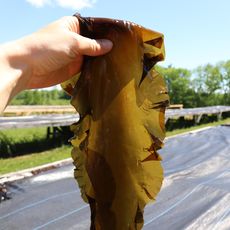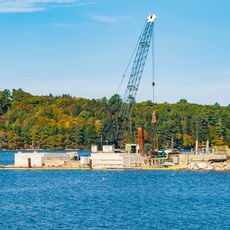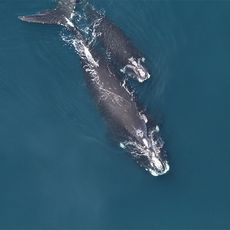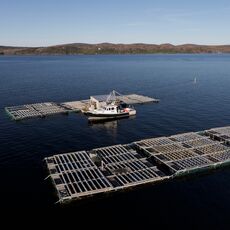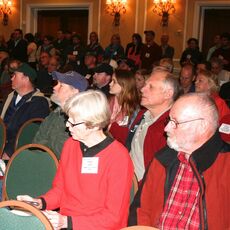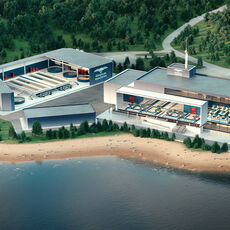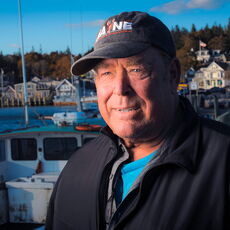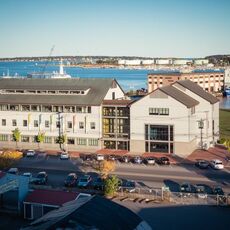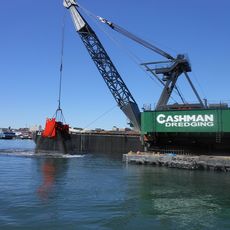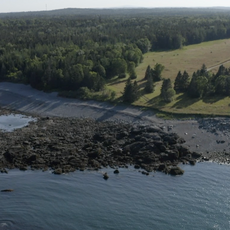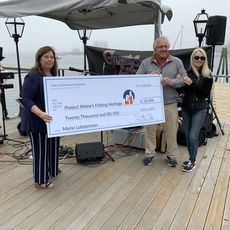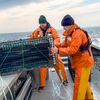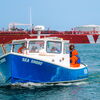Processing Your Payment
Please do not leave this page until complete. This can take a few moments.
- News
-
Editions
-
- Lists
-
Viewpoints
-
Our Events
-
Award Honorees
- 2025 Business Leaders of the Year
- 2025 Outstanding Women in Business
- 2024 40 Under 40 Honorees
- 2024 Women to Watch Honorees
- 2024 Business Leaders of the Year
- 2023 NextUp: 40 Under 40 Honorees
- 2023 Women to Watch Honorees
- 2023 Business Leaders of the Year
- 2022 NextUp: 40 Under 40 Honorees
- 2022 Women to Watch Honorees
- 2022 Business Leaders of the Year
-
-
Calendar
-
Biz Marketplace
- News
-
Editions
View Digital Editions
Biweekly Issues
- September 22, 2025
- September 8, 2025
- August 25, 2025
- August 11, 2025
- July 28, 2025
- July 14, 2025
- + More
Special Editions
- Lists
- Viewpoints
- Our Events
- Calendar
- Biz Marketplace
Fisheries & Marine
-
Aquaculture group releases first benchmarking report, business planning tools
Laurie Schreiber Updated: November 5, 2020Maine’s aquaculture industry is growing, thanks to interest from veteran commercial fishermen as well as young entrepreneurs. The Maine Aquaculture Association has released new tools to support the growth.
Laurie Schreiber Updated: November 5, 2020$5.2M rehab of waterfront lab in Walpole will build research and business capacity
Laurie Schreiber Updated: November 3, 2020Infrastructure dating back half a century will be rebuilt. “We’re bringing the laboratory into the 21st century,” said the center’s director, Heather Leslie.
Laurie Schreiber Updated: November 3, 2020Letter: Maine aquaculture industry needs companies of all sizes
Updated: November 2, 2020The clean, cold waters of Maine produce arguably some of the best seafood in the world, both wild caught and farmed.
Updated: November 2, 2020Right whale estimate plummets while Maine lobstermen await restrictions
Staff October 28, 2020The critically endangered species declined from just over 400 to about 360. Conservation organizations continue to call for reducing the number of fishing lines in the water and requiring vessels to slow when right whales are present.
Staff October 28, 2020How aquaculture’s pivot to direct distribution could go beyond pandemic
Laurie Schreiber Updated: October 27, 2020Mainebiz asked Sebastian Belle, executive director of the Maine Aquaculture Association, how the pandemic shutdown of restaurants has affected Maine's aquaculture industry and what's ahead for the industry.
Laurie Schreiber Updated: October 27, 2020Pandemic drives cancellation of popular Maine Fishermen’s Forum
Laurie Schreiber Updated: October 23, 2020The three-day conference typically attracts hundreds of attendees. But the president of the event's organizing group said, “There is no possible way that we can protect our forum participants in such a tight environment.”
Laurie Schreiber Updated: October 23, 2020Salmon farm planned for Maine Fair Trade Lobster site in Gouldsboro
Staff October 19, 2020Unlike land-based salmon farms now under development in Belfast and Bucksport, the American Aquafarms site would use closed deep-water pens for raising fish.
Staff October 19, 2020Skin care startup looks to a familiar Maine source for ingredient — lobster
Laurie Schreiber October 19, 2020Two entrepreneurs, UMaine grad students, have developed a skin care product that uses a protein derived from lobster to tackle eczema. They've partnered with Luke's Lobster to source the protein and found a New Jersey manufacturer to produce the
Laurie Schreiber October 19, 2020Despite an uncertain start to the fishery's season, lobster rolls on
Laurie Schreiber Updated: October 19, 2020In Stonington, a town synonymous with the iconic Maine industry, the lobstering season almost wasn't. Instead, it thrived, but not in the way lobstermen there anticipated eight months ago.
Laurie Schreiber Updated: October 19, 2020GMRI awarded $1.27M to help Maine fisheries overcome climate challenges
Staff October 8, 2020Funding comes from the National Oceanic and Atmospheric Administration's Climate Program Office, which announced $48.7 million in competitive awards to 79 new projects.
Staff October 8, 2020Next: Briana Warner made kelp tasty — and by January it will be in 700 stores
Laurie Schreiber Updated: October 5, 2020Working with over two dozen Maine suppliers and heading a Saco kelp processor, Warner aims to more than triple last year's production during 2021. While still small compared to the global industry, the business is making seaweed Maine-stream.
Laurie Schreiber Updated: October 5, 2020The Mainebiz 2020 Next List: 8 dynamic individuals changing Maine’s economy
Staff Updated: October 5, 2020These remarkable men and women are not only adding to the state's economy, they're demonstrating leadership at a time when Maine needs it most.
Staff Updated: October 5, 2020Luke’s Lobster, Island Institute launching e-commerce platform for seafood producers
Laurie Schreiber September 30, 2020Luke’s Lobster, a seafood company headquartered in Portland, and the Island Institute, a community development nonprofit in Rockland, have partnered to build an e-commerce platform for seafood producers.
Laurie Schreiber September 30, 2020New site off Maine coast could make it easier, safer to dredge the state's harbors
William Hall September 29, 2020A new federally created site for disposing dredge material will replace one slated to close next year, and may offer some advantages. Meanwhile, Portland Harbor has been denied federal funds for its own dredging project.
William Hall September 29, 2020Land-based aquaculture proposal in Jonesport receives critical permit
Staff Updated: September 29, 2020The permit is a key step toward building the facility in the Washington County town. Kingfish Maine is proposing a plant that can annually produce 6,000 to 8,000 metric tons of yellowtail kingfish.
Staff Updated: September 29, 2020Boothbay philanthropist donates $20K to fishermen's relief fund
Staff Updated: September 28, 2020There’s plenty of lobster, said one fisherman. But the industry is facing a host of challenges, and a Boothbay-area real estate investor is stepping in to help.
Staff Updated: September 28, 2020
Today's Poll
Sponsored by: Kennebunk Savings Bank
With the official end of summer this past weekend, we're taking a look back at how the season unfolded.
Back in early August, we asked how the summer tourism season was going — and at the time, the majority of respondents told us it could be better. And remember, the season started very rainy and ended amid a drought.
Now that the season has wrapped up, we're checking in again to see how things ended. Did things improve? Did tourism pick up later in the summer, or did the season fall short of expectations?
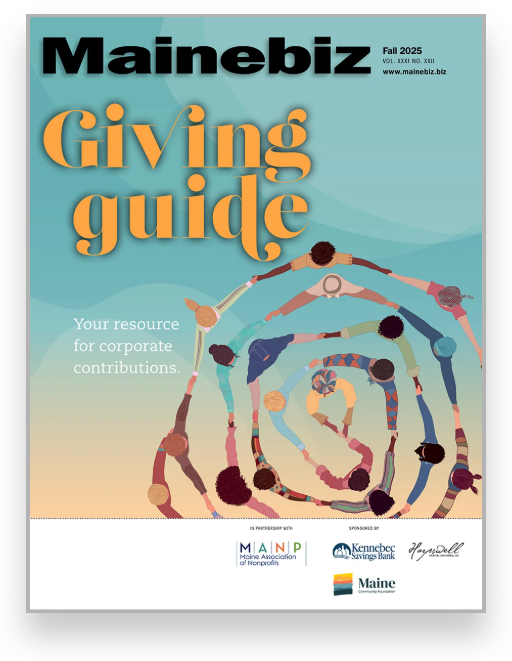
The Giving Guide
The Giving Guide helps nonprofits have the opportunity to showcase and differentiate their organizations so that businesses better understand how they can contribute to a nonprofit’s mission and work.
Learn More
Work for ME
Work for ME is a workforce development tool to help Maine’s employers target Maine’s emerging workforce. Work for ME highlights each industry, its impact on Maine’s economy, the jobs available to entry-level workers, the training and education needed to get a career started.
Learn More
Groundbreaking Maine
Whether you’re a developer, financer, architect, or industry enthusiast, Groundbreaking Maine is crafted to be your go-to source for valuable insights in Maine’s real estate and construction community.
Learn more-
The Giving Guide
The Giving Guide helps nonprofits have the opportunity to showcase and differentiate their organizations so that businesses better understand how they can contribute to a nonprofit’s mission and work.
-
Work for ME
Work for ME is a workforce development tool to help Maine’s employers target Maine’s emerging workforce. Work for ME highlights each industry, its impact on Maine’s economy, the jobs available to entry-level workers, the training and education needed to get a career started.
-
Groundbreaking Maine
Whether you’re a developer, financer, architect, or industry enthusiast, Groundbreaking Maine is crafted to be your go-to source for valuable insights in Maine’s real estate and construction community.
ABOUT
NEW ENGLAND BUSINESS MEDIA SITES
No articles left
Get access now
In order to use this feature, we need some information from you. You can also login or register for a free account.
By clicking submit you are agreeing to our cookie usage and Privacy Policy
Already have an account? Login
Already have an account? Login
Want to create an account? Register
This website uses cookies to ensure you get the best experience on our website. Our privacy policy
To ensure the best experience on our website, articles cannot be read without allowing cookies. Please allow cookies to continue reading. Our privacy policy
